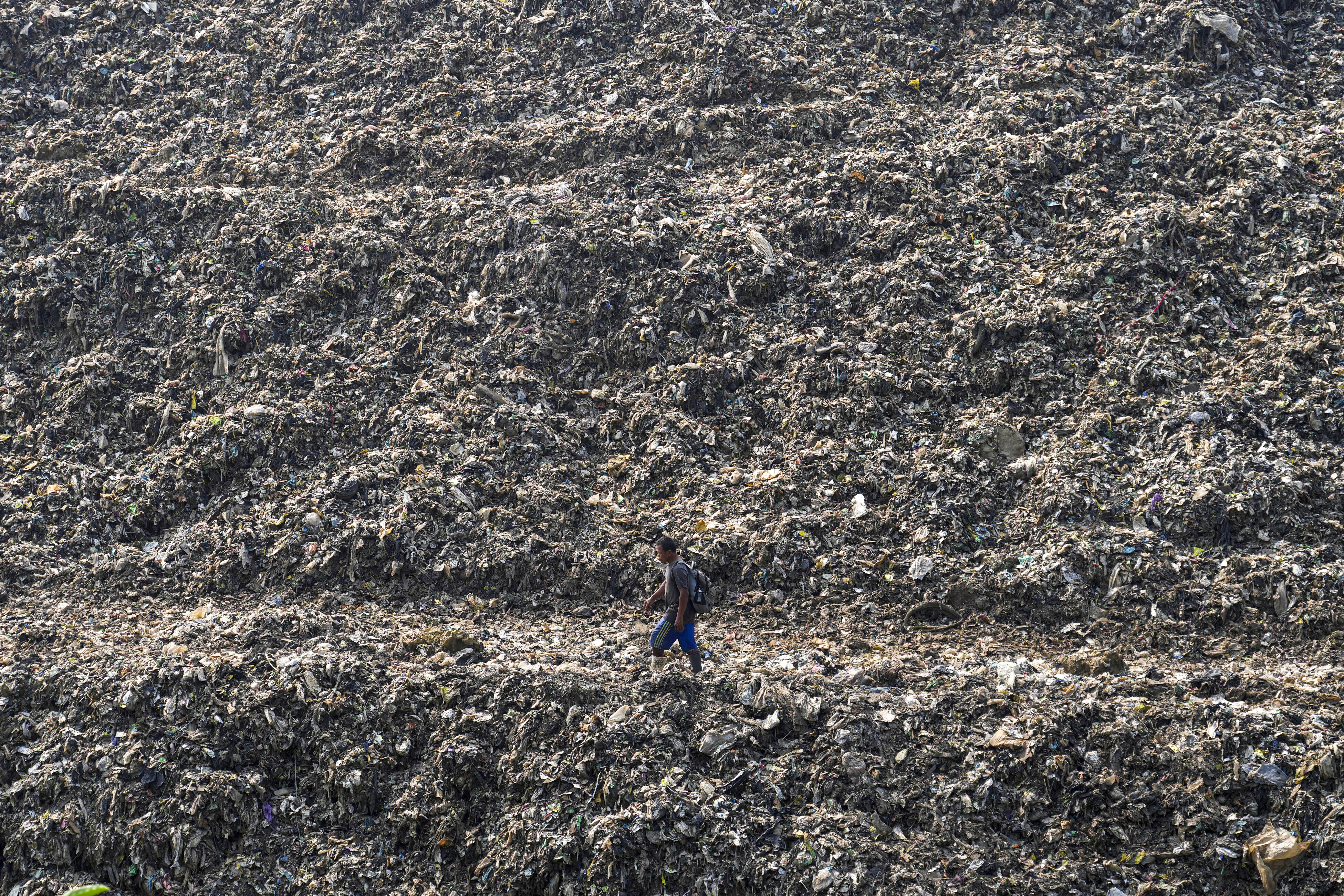The blistering rash on 7-month-old Sobhia’s skin is the result of bacteria from polluted water, doctors told her mother.
The infant, who was born a few months after the start of the Israel-Hamas war, is one of many young children in Gaza coming down with ailments associated with drinking or bathing in contaminated water, according to families, doctors and humanitarian groups in the area. Common issues include hepatitis and skin infections.
Samar Hamoda, Sobhia’s mother, said in an interview last month that the family had to flee northern Gaza and was staying in an evacuation zone in the southern city of Khan Younis. (The Israeli military ordered evacuations in eastern Khan Younis on Friday.)
“We came here to even worse conditions,” Hamoda said. “No clean place to stay in, and we did not find potable water so we could shower our children.”
Get top local stories in San Diego delivered to you every morning. Sign up for NBC San Diego's News Headlines newsletter.
Sobhia was prescribed medicine, she added, but the family could not find a hospital or clinic that would give it for free and she couldn’t afford the price.
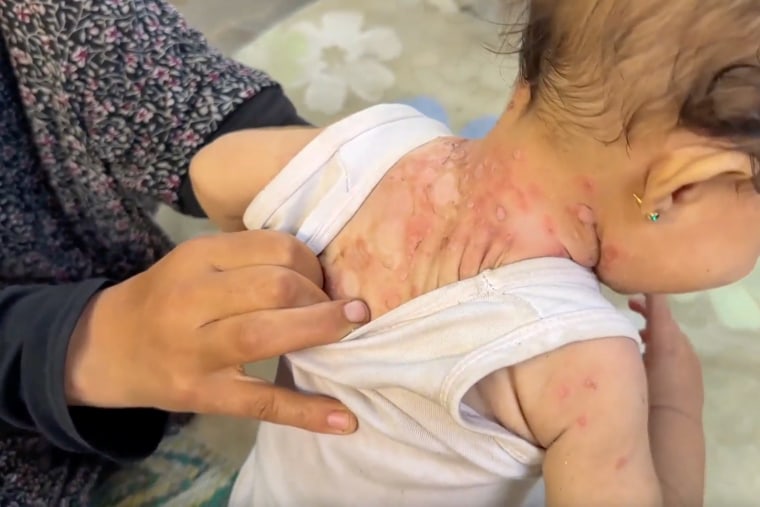
Gaza’s water system relies heavily on wells and desalination plants, but much of that infrastructure has been decimated. The aid group Oxfam International estimated last month that all of Gaza’s desalination plants and 88% of its water wells had been destroyed or damaged.
U.S. & World
All of Gaza’s wastewater treatment plants and 70% of its sewage pumps are gone as well, according to Oxfam. As a result, the amount of available water in Gaza has fallen by 94% since the war started, to less than 5 daily liters per person, the group estimated. (The United Nations says people in an emergency need at least 15 liters per day.)
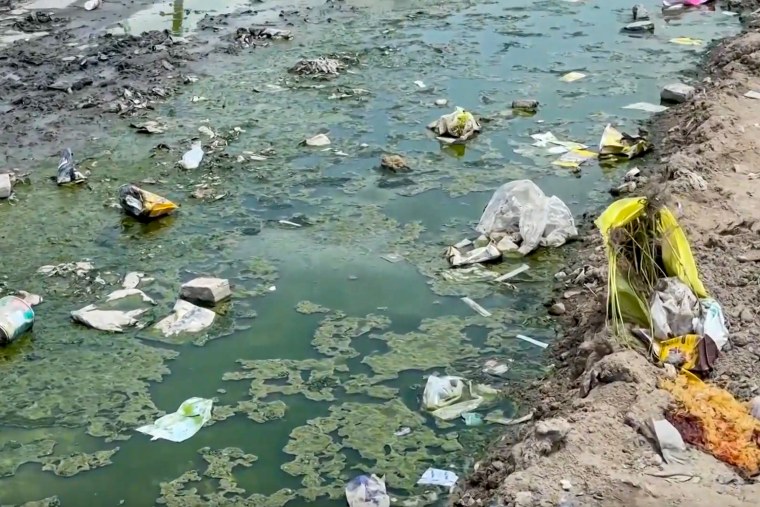
Israeli authorities did not respond to a request for comment about illnesses due to polluted water in Gaza. But the Israeli government body that liaises between aid agencies and the military — Coordination of Government Activities in the Territories, or COGAT — said last month on X that it had established a team for addressing sanitation issues in the enclave, including removing waste and securing power for a desalination plant.
“The team is also exploring additional measures to improve sanitation in Gaza, including repairing wells, upgrading desalination plants, and extending water lines,” COGAT said.
Humanitarian groups have also tried to help repair infrastructure, install septic tanks and distribute clean water and chlorine tablets, but their access to the enclave is extremely limited. So inhabitants have been left to drink and bathe in untreated seawater contaminated with sewage, without soap or disinfectants.
“You do not have a significant flow of safe and potable water coming in by tanker trucks crossing the border, and you don’t have the desalination effort up and running, and you don’t have the wastewater treatment functioning to keep fecal contamination down,” said Steve Morrison, senior vice president at the Center for Strategic and International Studies, a nonprofit think tank.
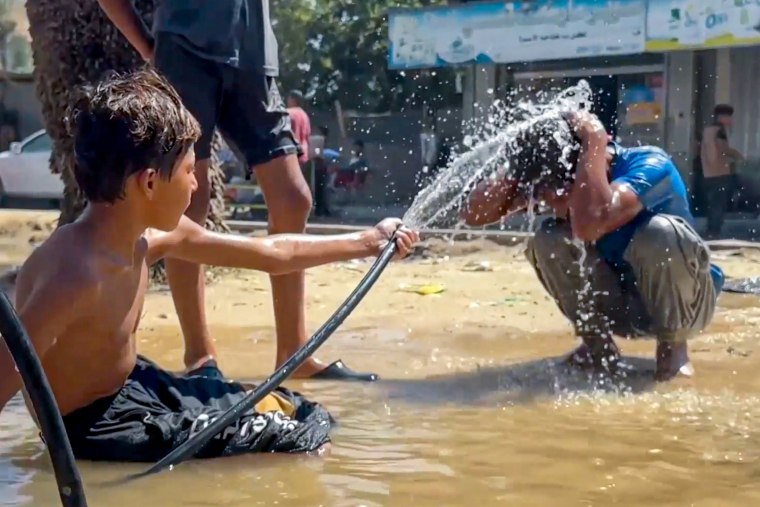
Ingesting food or water contaminated with feces can result in hepatitis A, a liver disease that can resolve on its own — but poor nutrition and sanitation can increase the risk of complications.
“Hepatitis A is widely spread nowadays in Gaza Strip due to bad sanitation and bad quality of food and the pollution of the water,” Dr. Ahmed Al-Farra, head of the pediatric department at Nasser Hospital in Khan Younis, said in June.
He described a 4-year-old boy at his hospital who was suffering from liver failure due to hepatitis A. The boy’s condition required a transplant, which is “not available in Gaza Strip, even before the war,” Al-Farra said.
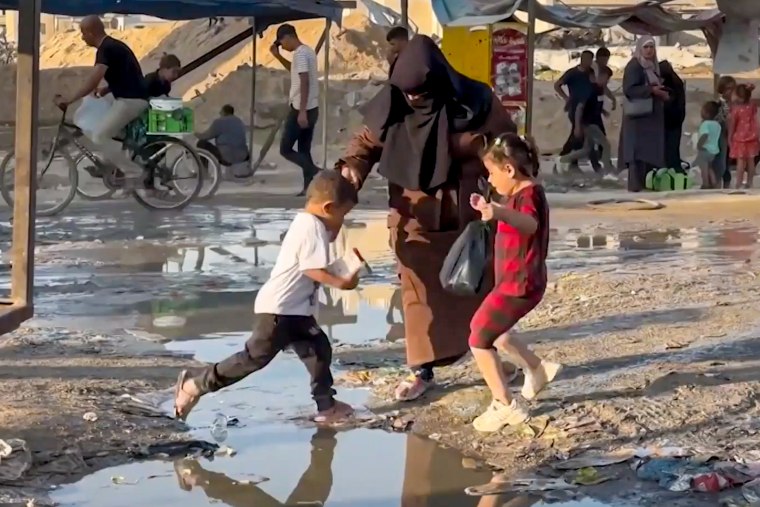
The United Nations estimates that there have been nearly 40,000 cases of hepatitis A in Gaza since the war began, compared to just 85 from October 2022 to July 2023. That’s in addition to more than 1 million new acute respiratory infections, more than half a million cases of acute diarrhea and more than 100,000 cases of jaundice. From October to late June, the World Health Organization also recorded around 65,000 cases of skin rashes and more than 103,000 cases of scabies and lice.
Alaa Al-Bata, the mayor of Khan Younis, said at least 30 water wells in southern Gaza were destroyed last month.
“A large part of the other wells are located in the evacuation areas and we fear that they will be destroyed,” he said. “We are suffering from a severe water crisis.”
Nasrin Al-Qarra, who had been displaced with her family and was residing in Khan Younis as of last week, described long lines for bathing water.
“We drink salty water many times,” she added. “We don’t think what will happen to you later. What’s important is I drink when I am thirsty and that’s it.”
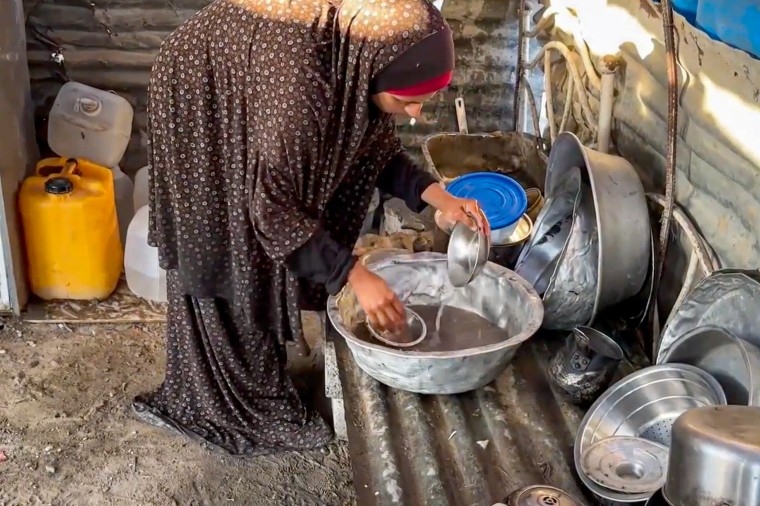
The United Nations has reported that efforts are underway to restore electricity to a desalination plant in southern Gaza, which could supply clean water to roughly a million people.
But in the meantime, health threats associated with dirty water keep mounting: The polio virus was detected in six wastewater samples in Gaza in June, following a decline in the area’s polio vaccination coverage last year. No new cases have been confirmed, but the WHO says there’s a high risk of polio spreading in Gaza. The virus can spread in various ways, including via drinking water contaminated with feces from a person who’s infected.
The WHO plans to distribute 1.2 million polio vaccines in Gaza in the coming weeks. The Israeli military did not respond to a request for comment about the risk of polio in the enclave, but COGAT said Tuesday on X that it supports a polio vaccination campaign and has been in touch with the WHO and UNICEF about the situation. (The Israeli military has also said it would offer polio vaccines to its soldiers in Gaza.)
But Morrison said the vaccination effort faces major challenges: The doses must be stored in cold temperatures so they don’t spoil, and it’s unclear whether there are enough health care providers to administer them.
“We know that the best way to vaccinate children multiple times is doing it in their homes. Well, here you don’t have people in their homes,” he said.
This story first appeared on NBCNews.com. More from NBC News:

